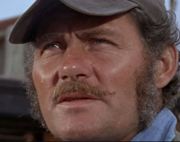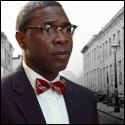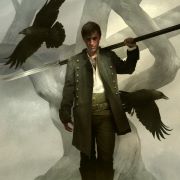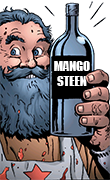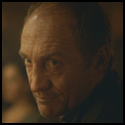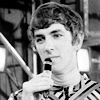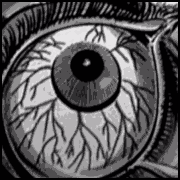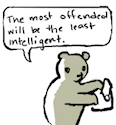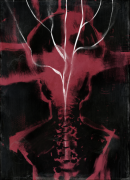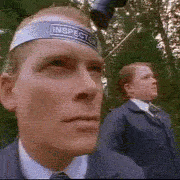|
Phanatic posted:James P Hogan, Dan Simmons, Poul Anderson, it's very common with authors. I think there's something to this too. I know I was way more creatively productive as an artist when I was younger. MUCH more proficient, energetic and inspired. I don't know if we just have more "juice" in our late 20's and early 30's, we kind of use up our really good ideas early on or if we get more bogged down more by poo poo like marriage, kids, houses or whatever. Probably some combination of the all that. I don't know how much cross over there is with art and sports but a lot of studies have been done on pro athletes that have statistically nailed down their peak performance around ages 26-28. I don't see a huge reason why this not be also the case for artists. The late 20's are kind of a sweet spot for most of us when you really think about it.
|
|
|
|

|
| # ? Jun 4, 2024 08:45 |
|
yeah i think that's just life, generally
|
|
|
|
BiggerBoat posted:Jack Torrance, Annie Wilkes, the prison warden from Shawshank, Kurt Barlow, Christine, Cujo, Carrie's mother, The Overlook Hotel, the Crimson King, Randall Flagg... Which film has the Crimson King in it?
|
|
|
|
BaldDwarfOnPCP posted:Playing Elden Ring, admiring the work of Giger or Zdzisław Beksiński, putting out ant poison. Lots of triggers. Yep, god that ending is good.
|
|
|
|
escape artist posted:Which film has the Crimson King in it? I assumed the Dark Tower. If not then oops.
|
|
|
NikkolasKing posted:So this is kind of a larger question but I'm focusing it here on King. There are a lot of different ways to approach this question, especially in regards to King. His books are still immensely popular, and the newer ones sell in numbers that very few authors can attain or sustain over an extended period of time. Short of someone like John Grisham or James Patterson or Danielle Steel there are basically no authors that match him in sheer numbers of units moved, although I think most people would rank King's work as more significant than all of those by most metrics. I don't know if I would call his most recent work "great" in comparison to what preceded it, but the guy can still spin a yarn that will entertain you for a few hours and maybe give you some lingering frights on a dark night. That's not nothing. I've heard King called "the American Dickens" and I think that fits better than any other comparison. For better or worse what he has created shifted not just literature but culture on a global scale and will be studied for however long humans have left on this rock. Circling back to the central question...I think the perspective of if you think his recent stuff rises to the level of greatness depends a lot of your personal perspective and affinities as a reader. The "phases" framework is also interesting here because it seems like most people divide King's oeuvre up into 3 chunks - pre-sobriety (1970-1987), post-sobriety (1989-1999), and post-accident (2001 onward). I would agree with that mostly, but with the caveat that I think the "post-accident" phase ended around 2012/2013 and now we're in what might be called King's "coda" phase. With that in mind, what does each of those phases reflect about King as a writer? - Pre-sobriety: King is a young guy with a lot of responsibilities, a lot of talent, and a lot of anger. He is deeply mistrustful of government, scornful of hippies and their ilk, holding on to a lot of internalized regressive ideas about gender and social roles, and has a hard streak of...not quite nihilism, but certainly a sort of determinism that assumes there are no good endings. This era of King is basically Old Testament God - an eye for an eye, even the pious can be damned, no one escapes. There are not endings so much as "pauses", although he lightens a little as we get into the 80's and a lot of his working class frustrations fall away in favor of his personal struggles with celebrity, addiction, prosperity, etc. I think this is King's "truest" era, where he's really using horror to get at the depravity of the world in a way that is instantly understandable or recognizable to anyone who picks up a book, which is why they sold a million copies. - Post-sobriety: This era kicks off with "The Dark Half" but that's more of a cathartic expression of King's struggle to get sober and his painful reflection on the years he spent pinned down by the bottle. The more important, and guiding, works of this era are "Gerald's Game" and "Dolores Claiborne". King has become much more interested the internal horror of relationships, of gendered oppression, in the redemption of the individual in defiance of the greater corruption of the broader world. Not new themes, but definitely a turn. Whereas his female protagonists of the previous era were usually developmentally arrested before they could transcend adolescence (Carrie, Firestarter, etc) or otherwise fully formed as whole if flawed adults (Susannah, Frannie, Beverley, etc) here King is very interested in at least attempting to bridge those two points (or even going beyond into middle or old age), rife with events that are disturbing and horrifying as they are quotidian. The most old school scary thing that King puts out in this era is probably "Nightmares and Dreamscapes". The theme here is "conflict", in the sense of reckoning with yourself and being put through a crucible of self-growth that may or may not be to your benefit. Post-accident: King almost dies. Miraculously he recovers with no serious issues. He wants now to believe that a rich man can buy his way into heaven, so to speak. Right out of the gate he puts out a sequel to "The Talisman", a trio of books to finish up the Dark Tower series, and "From a Buick 8" which is a weird little book about knowing to leave well enough alone but with just enough King flourishes to distract anyone not looking too closely. The rest of the decade is kind of all over the map; you get the sense of King wanting to experiment with some different stuff because what the hell why not, of dusting off some old unfinished works and challenging himself to make them cohesive (Under the Dome, for example), and more than anything going back to the idea of being able to set things right or at least resolve unfinished things (Duma Key), exploring "what if" scenarios (11/22/63), and connections to the afterlife/great beyond/other worlds as very significant to enduring the travails of life (Lisey's Story, Blaze, etc). King's whole deal in this era is "acceptance" or at least "principled resignation". Coda: I admittedly can't speak to these very specifically because I pretty much checked out of reading a lot of King after "Wind Through the Keyhole" came out, aside from whatever short story collections my mom gives me for special occasions. It does seem interesting that this is the time when King's work aligns more with the sort of pulp crime thrillers that he read a lot of as a kid, with varying levels of his usual horror trappings layered in, sequels fixated on specific characters (Hodges, Gibney, etc), and openly collaborating with his kid (Owen King). There are also works like "Revival" which are broadly considered return to "pre-sobriety" form. Interestingly enough King doesn't seem all that interested in picking up any of the connected multiverse building from the Dark Tower series outside of the short story here or there. Aside from Revival it seems like there are fewer "what does it all mean" sort of themes throughout the books. I don't know if there's a throughline here like in the other eras. I think King's greatest work is his pre-sobriety era, and that's easily my favorite stuff. I'm probably biased because I grew up reading all of those books dozens of times. IMO his recent stuff (and probably some stuff going back into post-accident era) is not "great" although it is certainly above average in terms of proficiency and overall quality. If his work is less influential on the broader culture now than it was in the 70s, 80s, 90s, etc then I think that has just as much (if not more) to do with the shifts in the broader media landscape than a hard drop off in his quality. The guy has been pumping out nigh-unfathomable amounts of words for 5 decades, it makes sense that his approach and focus would shift over time and that would mean the impact is maybe not as significant as it once was. He's still an all time great though. Mat Cauthon fucked around with this message at 05:28 on Mar 24, 2022 |
|
|
|
|
i grew up after king’s accident and read his books in a more or less random order and if i had to rate all of them the top ten would all inevitably be pre-sobriety. i hate the conceit that drugs and alcohol are responsible for good art but in king’s case, probably because hes a horror novelist, the correlation is undeniable
|
|
|
|
Mat Cauthon posted:There are a lot of different ways to approach this question, especially in regards to King. His books are still immensely popular, and the newer ones sell in numbers that very few authors can attain or sustain over an extended period of time. Short of someone like John Grisham or James Patterson or Danielle Steel there are basically no authors that match him in sheer numbers of units moved, although I think most people would rank King's work as more significant than all of those by most metrics. I don't know if I would call his most recent work "great" in comparison to what preceded it, but the guy can still spin a yarn that will entertain you for a few hours and maybe give you some lingering frights on a dark night. That's not nothing. I've heard King called "the American Dickens" and I think that fits better than any other comparison. For better or worse what he has created shifted not just literature but culture on a global scale and will be studied for however long humans have left on this rock. I really appreciate the effort post, thank you. Can you elaborate on this bit, though? This sounds really interesting and also these are the King books I was thinking of trying out next anyway due to the earlier recommendation. scary ghost dog posted:i grew up after king’s accident and read his books in a more or less random order and if i had to rate all of them the top ten would all inevitably be pre-sobriety. i hate the conceit that drugs and alcohol are responsible for good art but in king’s case, probably because hes a horror novelist, the correlation is undeniable I don't know if you watch or know anything about pro-wrestling but the life of an American pro-wrestler a few decades ago was a nightmare. It's changed a lot and it's saved a lot of lives. But a notable pro-wrestling journalist, Bryan Alvarez, once speculated on his podcast that the reason Chris Benoit and Eddie Guerrero were the greatest ever is precisely because of this hellish regiment. Of course they're also dead, and in Benoit's case his hosed up regiment led to even greater tragedy. Bryan's friend and cohost Vinny pointed out that a lot of wrestlers lived through this era of being on the road 300 days a year, of popping pain pills to deal with injuries, of getting concussion after concussion, and almost none of them ever turned out as good s Chris and Eddie. The relationship between adversity and talent is certainly one of the more intriguing parts of being human for me.
|
|
|
|
That was a great post Mat. Thanks for sharing.
|
|
|
|
NikkolasKing posted:Do you think this is a good or valid criticism? Somebody did great work once but not so much anymore? It's complicated. Like, Just After Sunset doesn't have much on Skeleton Crew or Night Shift. But those books also don't have N. drat if Mat didn't nail it to the wall though.
|
|
|
|
Yes, that was a fantastic post, Mat.
|
|
|
My pleasure, glad y'all liked it. I was in a sleep-deprived daze when I wrote all that, so I was a little worried when I woke up this morning that what I thought was clever insight would turn out to be a bunch of incoherent gibberish. NikkolasKing posted:I really appreciate the effort post, thank you. Can you elaborate on this bit, though? This sounds really interesting and also these are the King books I was thinking of trying out next anyway due to the earlier recommendation. Yeah sure thing. I haven't read a bunch of these in a while, and aside from Lisey's Story and a couple of the others I didn't read them multiple times so I can't quite quote them chapter and verse but I think I remember the gist well enough. In the Post-Accident era King gets very understandably interested in how people's lives end (or don't), connections to the afterlife (either in the sense of spirits and such, or legacies that people leave behind, or both), and the folly of trying to fix things that can't be fixed. That last one is not so surprising - King's deterministic streak has flipped from "everything ends badly, if it ends at all" to "things worked out as they were meant to and all anyone can do is make the best of it", which again is very understandable given the trajectory of his life. The way those themes play out on a book by book level vary but tend to hold pretty true IMO: - From a Buick 8: A cop gets killed by a drunk driver. His coworkers take his son under their wing to help the boy navigate the cycles of grief and anguish in the wake of the loss. The connection to the "found family" of his father is what helps the son through his pain, gives him a connection to the legacies of not just family but also service to others, and saves him from falling prey to those...blurry spots...in the world (or between them) that often engulf those who can't abide them. - Dark Tower 5-7: There's a lot to be said here about the shift in the tone of the series but to keep it short the main thing is that Roland keeps going, no matter what or who he loses until he reaches his goal...and then goes beyond it. He knows what's on the other side of the door and opens it anyway, because at the core Roland is a character that believes in an ideal, and resigns himself to carrying it forward despite maybe knowing better. The epilogue at the very end of the series is something of a meditation on faith, mainly the idea that those we lose are out there somewhere and never so far as to be beyond our reach as long as we hold to their memory but more literal. - Colorado Kid: Somewhat typical "weird little town where weird stuff happens with disturbing regularity" story, but the focus is on the old gaffers using the one story they hold close to the vest to test out the ability of a newcomer to accept the idiosyncrasies of not just the town but the nature of mysteries that can't or shouldn't be explained. - Lisey's Story: A widow is mired in her grief, trying to figure out how to work through it and reconcile a lot of things about her husband that maybe weren't as clear until after he's gone. In doing so she discovers a connection to another realm that is somewhat magical but also clearly a sort of "afterlife" where she can more clearly unpack all the things that were hidden from her before. - Blaze, Under the Dome: File these under "old works that King dusted off and refurbished". There are spirits in Blaze and you could make the argument that Under the Dome is somewhat about men believing too much in their own legacies or influence but they're mostly outliers in this era. - Duma Key: Similar to Revival this one is seen as more of the old school King style, but there's some strong stuff here about the diminishment of aging (be it physical, spiritual, or mental), the dangers of legacies that talented parents leave behind to their children, and the limits of the efficacy of trying to wipe the slate clean. - 11/22/63: Pretty straightforward - the singular event of King's generation was the JFK assassination. If anything it would be surprising if he didn't write a book about it, or trying to stop it. There's not much spirituality here; the main themes are acceptance of what you can't change, albeit after spending a lot of time making things worse by trying. - Dark Tower 8: If those themes hold here, it is in what the story reveals about the complexities of Roland's relationship with his mother. What happened can't be changed however Roland can choose to accept the small tokens that signal maybe not redemption but at least absolution for his mother (and eventually for himself). - Joyland: Another one of King's mystery-thriller installments, but with a more explicit emphasis on spirits as vestiges of unfinished business that the living find themselves caught up in and the usual turn of the living enabling themselves to live more fully by freeing the ghosts. - Doctor Sleep: This one is where King ties off all the themes of the Post-Accident era IMO, leaving him free and clear to move into the next phase. It doesn't hurt that he did so in the form of a sequel to the Shining, something that people have been clamoring for and also never really quite believing would happen. As villains the True Knot are somewhat underwhelming in King's rogues gallery but I think they work as diametric foils to Danny - easing the transition into death versus the TK's pervasion of it, a wrecked man buckling under the weight of legacies not his own versus a bunch of drifters lurking in the shadows with no past to name except the boundless invocation of pain, etc. At the end of the book Danny has let go of trying to fix himself, in part because he has found someone who needs him more than he needs to be "fixed". Writing up all that makes me want to go back and read all of those again to see if what I remember tracks with the books, and look at it from a much different perspective based on where I am in life now. But I think it mostly holds up. Important to note that I don't think any of these themes are necessarily new to King - he's very much a perpetual canon sort of author, in the sense that all of these things have been there in his work going back to the beginning. The difference is that where he is in life determines the emphasis on the "catch", or the emergence of certain through lines that shape different eras of the work. In any case the books you were planning on checking out next are all good choices and it'll be interesting to hear your take on them once you've had a chance to read and mull over them a bit.
|
|
|
|
|
Mat Cauthon posted:My pleasure, glad y'all liked it. I was in a sleep-deprived daze when I wrote all that, so I was a little worried when I woke up this morning that what I thought was clever insight would turn out to be a bunch of incoherent gibberish. Not at all. https://www.youtube.com/watch?v=ke5Mr5eCF2U Nice to have effort posts in this or any other thread. e: video link not directed at you I just want an excuse to post it and then compare the set from Blazing Saddles to the one we all imagined in Jerusalem's Lot BaldDwarfOnPCP fucked around with this message at 02:53 on Mar 25, 2022 |
|
|
|
Mat Cauthon posted:My pleasure, glad y'all liked it. I was in a sleep-deprived daze when I wrote all that, so I was a little worried when I woke up this morning that what I thought was clever insight would turn out to be a bunch of incoherent gibberish. Again I appreciate the insights. Skrillmub suggested Under the Dome and 11-22-63 if I liked the strong character aspect of The Shining and IT but I've always loved when Fantasy, Horror, Scifi, whatever, is sort of an "expansion of characters." Somebody once told me what separates genre fiction from "high art" is "when the orcs mean something" Lord of the Rings is not about an evil ring, it's about Sin as represented by an evil ring, and the war every mortal being has with it. That's why Frodo could never actually throw the Ring into Mt. Doom - because no being can truly rid himself of sin, we need the grace of God. That's how I view The Shining and IT. I don't think this is radical interpretations. The Hotel and Pennywise are nothing more than supernatural manifestations of mundane, real human problems. I've been rewatching Buffy and that is its entire thing, using magic and demons to tell a vey real coming of age story. In fact, when thinking on this, on Buffy which in Season 3 has a theme of despair, and on the Christian themes in LOTR, I wonder if this wasn't what The Shining was all about. Despair is the gravest of sins because it says forgiveness and salvation are not possible. In Buffy, Buffy forgives herself for her actions but Faith sinks further into evil because she can't believe she deserves forgiveness. She gives into despair. The Hotel maybe represents Jack's despair, his belief he could never make amends for his wrongdoings. Probably not groundbreaking insights but I ever really thought about it before, I was too caught up in the differences between the movie and the book where Jack is more of a victim in the book. But maybe he's a victim of his own despair in the novel and the Overlook is the metaphor for that. But yeah, this is why I generally gravitate towards stories that aren't perfectly real world. NikkolasKing fucked around with this message at 04:31 on Mar 25, 2022 |
|
|
|
I only like the audiobook of From a Buick 8. I don't know why.
|
|
|
|
There was an Under the Dome TV series? I was checking on how to spell names before I posted and Googling Jim Rennie took me to a wiki page for his TV series self. Was it any good? I'm enjoying the book so far. I chose it since the premise sounded the most interesting. Big Jim here makes me think of the religious kook from The Mist, although I only ever saw the movie. And she at least seemed to have been driven to madness by circumstance. Jim here was a failure of a human being long before the Dome came down. The worst kind of person - someone with a little brains and a little power who thinks he's God and Einstein. I wonder if that blond who drove passed Barbie had something to do with the Dome somehow. After Nyuk Nyuk Nyuk....you ever heard the quote "a thousand pleasure are not worth a single pain?" Stuff like this story makes you wonder if that applies to people. I have no doubt most people in the world are basically good but all it takes are a handful of people like the two Rennies and the thugs raping Sammy to ruin the world. Pain, revolution, negative states in general are always so much stronger. I gotta say, I don't know if I'd characterize the Losers as super accurate or believable kids in everything they said or did, but they were a helluva lot more believable than the kids in this book. I guess it shouldn't surprise me King knows kids from the 50s or 60s better than kids in the 2000s. But who cares, they aren't the good or interesting characters, anyway. I think my favorite characters, probably not surprisingly, are Dale and Julia. Jr. is compelling in his awfulness and I just want somebody to hurry up and find the corpses. Don't corpses leave a massive stink? There's three of them now, too. I don't think a pantry would suppress that. I'm just after the failed missile attack. Sorry I don't have much more insightful commentary. I'm really enjoying myself but I don't know what the heck is going on.
|
|
|
|
Yes there was an Under the Dome TV series. No it was not good. It sucked. The book is good. See also: The Stand TV series.
|
|
|
|
I liked UTD a lot -- I'd probably rank it in his top 10 -- but that show was loving terrible. Like holy lol. Re: Big Jim -- take a look at his relationship with Andy Sanders, and you'll see Stephen King's take on Dick Cheney/George W. Bush.
|
|
|
|
I remember under the dome had heavy Windows Cell Phone product placement, and one of the main characters getting a new show so season 2 starts with her abruptly getting killed.
|
|
|
|
quote:Our hot story this morning: The Transom has learned that HBO Max is developing an It prequel series that is tentatively titled Welcome to Derry. The series would likely explore the origin story of Pennywise the Clown as well as the dawn of the 27-year curse that haunts the small Maine town. https://theankler.com/p/transom-it-heads-to-hbo-bay-to-uni?s=w
|
|
|
|
Eason the Fifth posted:I liked UTD a lot -- I'd probably rank it in his top 10 -- but that show was loving terrible. Like holy lol. I just got to after poor, naive Brenda's end and the manufactured food riot. I've developed the strangest feeling. Obviously I don't like Big Jim but I hate his yes men more. Jim is such a narcissistic buffoon that his crimes are like "does a bear poo poo in the woods?" Does Big Jim do everything that is awful and indefensible? But the people around him - the fools, the cowardly, and the thuggish - are so much worse because they aren't so blind. There's something resembling humanity in some of them but they work with the Devil, anyway. These are simply varying circles of Hell but it's how I feel at the moment. And things are only gonna get worse....
|
|
|
|
lol yeah nothing goes right in that book. I was really impressed, just like at a writing skill level, how King wrote such a long novel that never lost momentum. Most of his longer stuff has these stretches that are good but frankly boring (like Bill's taxi ride in It). I can't think of any off the top of my head in Under the Dome (or at least any that weren't followed up with something interesting).
|
|
|
|
"She had his dog tags in her hand!" The dog tags he has never, ever worn as seen by the fact nobody in town knew he was in the army. The dog tags he could have just easily taken out of her dead hand but decided to leave because.....uh.... I know, I know. These people have been manipulated. They're not thinking straight . But a five-year-old could see through this plot. Eason the Fifth posted:lol yeah nothing goes right in that book. I was really impressed, just like at a writing skill level, how King wrote such a long novel that never lost momentum. Most of his longer stuff has these stretches that are good but frankly boring (like Bill's taxi ride in It). I can't think of any off the top of my head in Under the Dome (or at least any that weren't followed up with something interesting). See, I never had a problem with IT. The King doorstopper which stopped me many times was The Stand. I started and stopped it repeatedly and I'm not sure I could get through the whole thing again. IT I would love to read - well, listen to since the audiobook is perfection - again when I have the time. I'm really into "Dome" right now, though. It does have a great pace and I desperately want to know what is going on and also how these bastards are brought to justice, if they ever are. All in due time. NikkolasKing fucked around with this message at 01:40 on Mar 30, 2022 |
|
|
|
NikkolasKing posted:
You might like/try 11/22/63. It's another long one and does have some mild drag around the halfway mark but as "door stoppers" go I'd recommend it. The part you might want to skip is telegraphed pretty hard and feels obvious right away but doesn't ruin the book or take up too much of it.
|
|
|
|
It does a really good job in switching between 1955 and 1985 too, which is where the adaptations tend to not be as good by separating them completely.
|
|
|
|
I've only read it once, about ten years ago, but I always thought Under The Dome was a fantastic idea, well told, and then a terrible ending. And a psychic dog, for some reason.
|
|
|
|
I couldn't finish Under The Dome when it came out. I remember finding the characters (only read maybe a 100 pages) too King stereotypical and at the time I just finished The Plague by Albert Camus which touched on the same themes of isolationism. I might have to give another try or maybe get the audio book to listen to while running. It sounds like it might be worth the read. IT prequal? I'll watch, but HBO Max already passed on the Overlook series which I think would have been more interesting than Derry and Pennywise. I will push my idea (for the 100th time) that someone needs to do series about Hubie Marsten and his years in Salem's Lot.
|
|
|
|
Gambrinus posted:And a psychic dog Great now I'm having flashbacks to Oy possessing Jake in one of the later Dark Tower books.
|
|
|
|
quote:Stewart looked at him as if he had gone mad. He probably has, Andy thought. We probably both have. But of course Jim Rennie was mad, too, so that was a wash. I like this line. I'm kinda rootin' for the gun-toting meth-heads in this particular struggle. They got AKs and grenades too so Big Jim's high school thugs probably won't put up much of a fight. It's jut nice to have somebody, anybody, actually gently caress up his plans. I feel this way even stronger after the clusterfuck at the town hall, with Andrea dying seemingly for nothing. It will depend on the ending I suppose but while PS is the most depressing King book I've read, none has been more maddeningly frustrating than this one. Somebody please kill this bastard. Gambrinus posted:I've only read it once, about ten years ago, but I always thought Under The Dome was a fantastic idea, well told, and then a terrible ending. And a psychic dog, for some reason. This seems to be kind of a meme or maybe legitimate criticism of King. How many times have you herd "IT ended with a giant freakin' spider"? It's dumb I know but The Stand at least had a pretty weak ending, I felt. I'm hoping I like the ending. This has been a great book but it really does hinge on the resolution. I demand a satisfying, cathartic resolution. I'm okay with weird, laughing, sadistic aliens being behind this. Please no secret government conspiracy after all. Also I bought Revival with my monthly Audible credit. NikkolasKing fucked around with this message at 01:35 on Mar 31, 2022 |
|
|
|
If people are interested, there's a good interview with Stevie on the BBC Sounds website/app, where he's interviewed by Archbishop Justin Welby. Some of the anecdotes (esp. the first one) will be familiar to most, but it mainly covers King's religious and spiritual views. https://www.bbc.co.uk/sounds/play/m0015tpd
|
|
|
|
Now I'm imagining the archbishop calling King at 2am and saying "yes, Stephen, there is a god."
|
|
|
|
I've finished the book. When people talk about bad endings, I usually envision bad twists which reveal some fact that fundamentally alters the story. The highly speculative language in the novel about "leatherhead kids" made me think this might be what was gonna happen here, that our heroes were getting the wrong impression and it would be clarified in the end. It wasn't aliens at all but something else. That did not happen so I'm not sure what bugs people about the ending. I was also beginning to fear none of them would survive but that also didn't happen. I'm pretty satisfied with the novel. Abstractly, I can guess the dissatisfaction with the ending is maybe due to the late reveal of Julia's childhood trauma, or maybe Sam's timely arrival, or just the way the heroes "win." But I don't think any of this is a serious problem, and the last part is even fully appropriate to what the book was about in my view. Time an time again our heroes efforts amount to nothing, they are ants in an anthill. The only salvation possible is pity from a de facto god. Ollie's survival mad me tear up a bit, oddly more than our main group of heroes. I was planning on just reading this book but it's hard to stop when you'rE in the groove, ya know? Revival is shorter, maybe I can do that right now.
|
|
|
|
I liked Under the Dome's ending too even though I usually roll my eyes when King pulls sudden shifts and gets way far out like that. Not sure shy that one landed for me. Revival is really strong from start to finish IMO and I think you'll like it. 11/22/63 might be the best of the bunch.
|
|
|
|
BiggerBoat posted:11/22/63 might be the best of the bunch. A lot of people do swear by it and I'll try it eventually. Just the premise doesn't really grab me. Also whenever I think of King I inevitably think of this Robot Chicken sketch https://www.youtube.com/watch?v=wg0EpEzqYCc I hear this is blocked in some countries. It's a parody of Dean Koontz being a second rate Stephen King. But there's a YT comment that says: quote:Should’ve been James Patterson, mainly because King hates that rear end in a top hat Obviously I'm skeptical but just wondering if any of you know anything about this? Also I have no idea who James Paterson is. I at least know Dean Koontz's name.
|
|
|
|
James Patterson writes a lot of mystery/thriller type novels. They're...Well, they're alright, in my opinion. If I remember right, King has described himself as the literary equivalent of a Big Mac and fries, and if that is the truth, then James Patterson is like a plain hamburger (no cheese). I'm having trouble really thinking about how to describe the stuff of his that I've read. I haven't read him in a long time, granted, but I liked the Alex Cross books that I read, but they didn't seem any better than other novels of that ilk, much like his series about the Women's Murder Club.
|
|
|
|
NikkolasKing posted:A lot of people do swear by it and I'll try it eventually. Just the premise doesn't really grab me. Fair enough but the writing is really solid. Maybe you'll be surprised. I think you'll like Revival at least. I recall it being a real page turner. I got suckered into Koontz because the first book I read of his was Intensity which I thought was incredible but 3 or 4 novels later, when I began exploring his work, they all sucked and I began to notice his shortcomings as a writer. Patterson is just loving horrible IMO. I can't stay with bad writing and, to me, it's like watching a movie with bad acting. Doesn't matter how good the script and direction are. You have to sell it. I had a friend of mine who started recommending Kellerman to me and, like Patterson, it just strikes me as stuff written for people that like to tell other people they read books. I hate how arrogant that sounds and god knows I've tried to read some poo poo that's over my head (Infinite Jest comes to mind) so I'm not casting aspersions here. One thing I always like about King is that his prose, structure and syntax are never the thing that takes me out of the story, even if the book is not to my liking. Well...maybe Cell. I don't know what happened there but even with that one I don't think it was the writing that made me put it down. Maybe it was but I don't remember it that way. That book just fell off a cliff IIRC and I rarely quit on a book that I start.
|
|
|
|
More than the books themselves I imagine King loathes JPs ghostwritten production line model
|
|
|
|
BiggerBoat posted:Fair enough but the writing is really solid. Maybe you'll be surprised. I think you'll like Revival at least. I recall it being a real page turner. It was this thread that someone described Cell as being a book that got worse with each chapter, and that's the best description of it I can think of. It's baffling how the book just spirals downward. I kept reading because there was no way that it could just keep getting worse, but it never failed me in that regard.
|
|
|
|
The way I've always described King's endings is that he's a master at spinning gold into straw.
|
|
|
|

|
| # ? Jun 4, 2024 08:45 |
|
High Warlord Zog posted:More than the books themselves I imagine King loathes JPs ghostwritten production line model I picked up Daniel X at an airport one time because I forgot to bring something to read and I had heard that Patterson was the king of airport fiction or some bullshit. My god, that might be one of the worst books I've ever read and I was amazed that he was such a popular and prolific writer. But if it was ghost written and they just slapped his name on the cover I guess that explains some of it.
|
|
|



